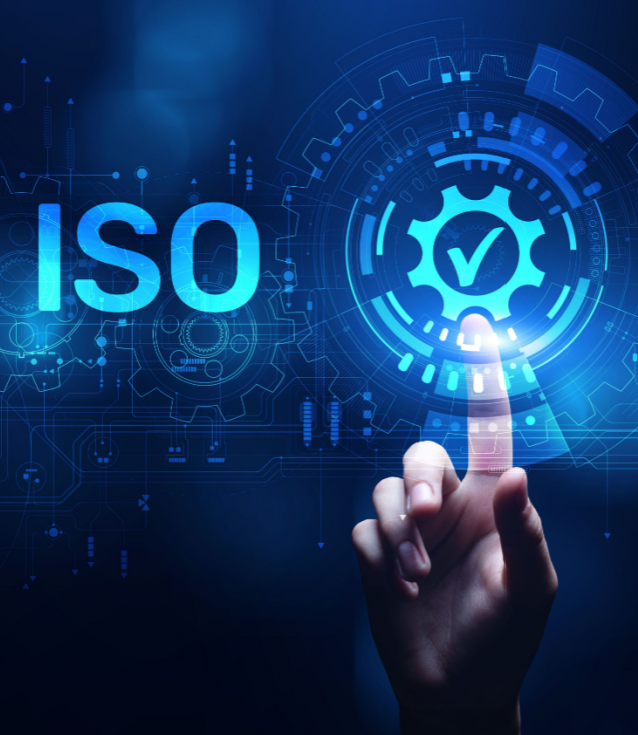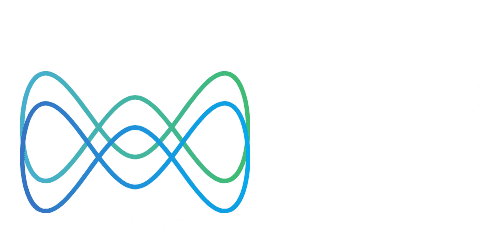ISO
ISO stands for the International Organization for Standardization. It's an independent, non-governmental organization that develops and publishes a wide range of international standards. These standards provide guidelines and best practices for various aspects of business, technology, manufacturing, and more.

Key Points
Here are some key things to know about the ISO:
- Focus: Their main objective is to create standards that ensure quality, safety, efficiency, and consistency across different industries and countries.
- Membership: Over 160 countries participate in the ISO, making it a truly global organization.Standards Offered: The ISO has published over 20,000 standards covering a vast array of topics, from information security (ISO 27001) to business continuity management (ISO 22301) to Quality (ISO 9001).
Benefits of ISO Standards:
- Improved Quality: Following ISO standards can help organizations enhance the quality of their products and services.
- Increased Efficiency: Streamlined processes based on ISO guidelines can lead to greater efficiency and cost savings.
- Global Recognition: ISO certification demonstrates an organization's commitment to quality and international best practices, potentially boosting their reputation and marketability.
While ISO certification isn't mandatory for most businesses, adhering to relevant standards can offer significant advantages. It signifies a commitment to quality and best practices, potentially leading to increased customer trust, improved operational efficiency, and a competitive edge in the global marketplace.
ISO 27001
ISO 27001, formally known as ISO/IEC 27001:2022, is an internationally recognised standard that sets out the requirements for establishing, implementing, operating, maintaining, and continually improving an Information Security Management System (ISMS).
In simpler terms, it provides a framework for organisations of any size to manage the security of their information assets effectively.

More Information
Here's a breakdown of what ISO 27001 is all about:
- Focus: Protecting an organisation's confidential, sensitive, and valuable information. This includes data, intellectual property, financial information, and personal data.
- Structure: The standard outlines a set of controls that cover various aspects of information security, such as access control, risk management, physical security, and incident management. These controls are like building blocks for a robust information security system.
Benefits: Implementing ISO 27001 can offer several advantages, including:
- Reduced Risk of Data Breaches: The controls outlined in the standard help identify and mitigate information security risks, minimizing the chances of data breaches and cyberattacks.
- Improved Compliance: Meeting the requirements of ISO 27001 can help organisations comply with various data privacy regulations like GDPR (General Data Protection Regulation) and Data Protection Act 2018.
- Enhanced Customer Trust: Demonstrating a commitment to information security through ISO 27001 certification can build trust with customers and partners who rely on your organisation to protect their data.
- Streamlined Processes: The ISMS framework encourages a structured approach to information security, leading to more efficient processes.
Obtaining ISO 27001 Certification:
While implementing the ISO 27001 framework is valuable, some organisations choose to pursue formal certification. This involves an audit by an accredited certification body to verify that the organisation's ISMS meets the requirements of the standard. Certification can provide additional credibility and assurance to stakeholders.
Who Can Benefit from ISO 27001?
ISO 27001 is applicable to organisations of all sizes and across various industries. Any organisation that handles sensitive information can benefit from implementing the framework and potentially achieving certification.
ISO 22301
ISO 22301, formally known as ISO 22301:2019, is an international standard that focuses on Business Continuity Management (BCM).
It outlines the requirements for establishing, implementing, operating, maintaining, and continually improving a Business Continuity Management System (BCMS).

More Information
In simpler terms, ISO 22301 provides a structured framework for organisations to prepare for, respond to, and recover from disruptive incidents that could potentially halt critical business operations.
Here's a deeper dive into what ISO 22301 is all about:
- Goal: Ensure an organisation can resume critical functions after a disruption with minimal downtime and impact on business continuity.
- Focus: The standard emphasizes identifying potential threats (natural disasters, IT outages, power failures, etc.), assessing their impact, and developing a plan to ensure a swift and effective response.
Benefits: Implementing ISO 22301 can offer several advantages:
- Reduced Downtime: A well-defined business continuity plan minimizes downtime and ensures a faster recovery after an incident.
- Improved Resilience: Organisations become more prepared to handle unexpected disruptions and maintain operational continuity.
- Enhanced Reputation: Demonstrating a commitment to business continuity through ISO 22301 certification can inspire confidence in customers, partners, and investors.
- Reduced Costs: Minimising downtime translates to fewer financial losses from business disruptions.
Key Components of ISO 22301:
- Business Impact Analysis (BIA): Identifying critical business functions and assessing the potential impact of various disruptions.
- Risk Assessment: Evaluating the likelihood and severity of potential threats.
- Business Continuity Plan (BCP): Creating a comprehensive plan outlining steps to recover critical functions after an incident.
- Testing and Training: Regularly testing the BCP and training staff on their roles and responsibilities.
Who Can Benefit from ISO 22301?
While beneficial for any organization, ISO 22301 is particularly valuable for businesses that rely heavily on technology or have critical operations that cannot afford significant downtime. Here are some examples:
Certification
Similar to ISO 27001 organisations can pursue ISO 22301 certification. This involves an audit by an accredited certification body to verify that the BCMS meets the standard's requirements. Certification demonstrates a formal commitment to business continuity preparedness.
ISO 27701
ISO 27701, formally known as ISO/IEC 27701:2019, is an international standard that builds upon the foundation of ISO 27001, the information security management standard.
While ISO 27001 focuses on overall information security, ISO 27701 specifically addresses Privacy Information Management Systems (PIMS).

More Information
Here's a breakdown of what ISO 27701 is all about:
- Focus: Protecting Personally Identifiable Information (PII). This includes data like names, addresses, social security numbers, email addresses, and any information that can be used to identify an individual.
- Compliance: While not a GDPR (General Data Protection Regulation) specific standard, ISO 27701 helps organisations comply with various data privacy regulations around the world by providing a framework for managing PII effectively.
- Integration: ISO 27701 is designed to be integrated with an existing ISO 27001 ISMS (Information Security Management System). Organisations with an established ISMS can leverage ISO 27701 to extend their information security practices to encompass robust privacy controls for PII.
Benefits of ISO 27701:
- Enhanced Data Privacy: Implementing the framework outlined in ISO 27701 helps organisations manage PII effectively, minimizing the risk of data breaches and unauthorised access.
- Demonstrated Compliance: Following ISO 27701 guidelines can demonstrate an organisation's commitment to data privacy regulations, potentially reducing the risk of regulatory fines and legal issues.
- Increased Customer Trust: Customers are increasingly concerned about data privacy. Achieving ISO 27701 certification can build trust and confidence by showcasing your commitment to protecting their personal information.
- Improved Business Reputation: A strong data privacy posture can enhance an organisation's reputation and give it a competitive edge in the marketplace.
Key Components of ISO 27701:
- Data Mapping: Identifying where PII is stored, processed, and transmitted within the organisation.
- Privacy Impact Assessments (PIAs): Evaluating the potential privacy risks associated with processing PII.
- Data Subject Rights Management: Establishing processes to handle data subject requests (access, rectification, erasure, etc.) as outlined in data privacy regulations.
Who Can Benefit from ISO 27701?
ISO 27701 is particularly valuable for organisations that collect, store, or process significant amounts of PII.
Certification:
Similar to ISO 27001, organisations can pursue ISO 27701 certification. This involves an audit by an accredited certification body to verify that the PIMS meets the standard's requirements. Certification demonstrates a formal commitment to robust privacy information management practices.
